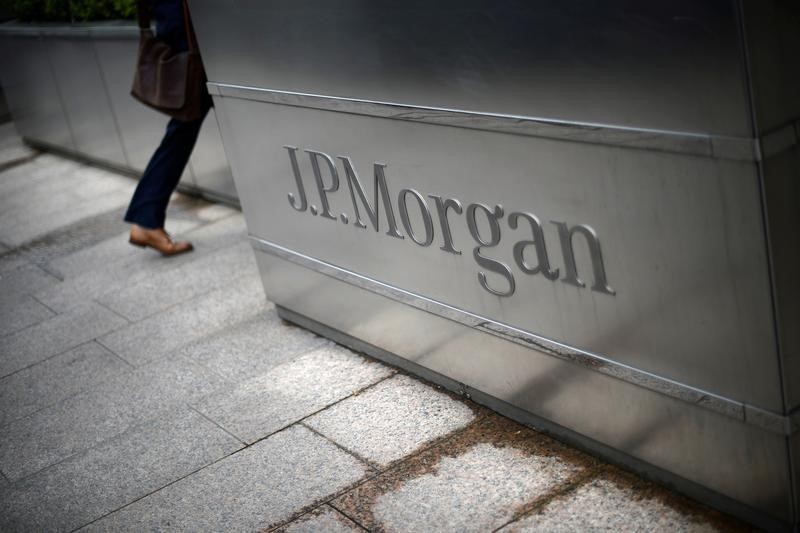Nupur Anand and Lanan Nguyen
NEW YORK (Reuters) – JPMorgan Chase forecasts it will get more revenue from rising U.S. interest rates despite uncertainty hanging over the economy, bank executives said at an investor day on Monday.
The largest U.S. lender raised its forecast for net interest income (NII), or the difference between what it earns on loans and payments on deposits, to $91 billion, excluding its markets division. This is higher than the previous forecast of $89 billion in April.
The bank’s shares fell 0.5% in morning trading.
JPMorgan’s previous forecast for NII disappointed analysts, who had expected it to benefit more from higher borrowing costs.
“The environment is increasingly challenging,” Chief Financial Officer Jeremy Barnum told investors, citing increased regulation and geopolitical uncertainty.
NII’s path is likely to be “noisy” in the coming quarters, with ups and downs, Barnum said.
The U.S. economy is heading for a soft landing that will avoid a severe downturn, but the bank is prepared for risks that could derail that forecast, its President Daniel Pinto said.
“Obviously there are uncertainties,” he added.
JPMorgan has received billions in loans since it bought failed lender First Republic last May. The purchase boosted interest earnings and helped push profits to a record high.
NII’s forecast “confirms JPM’s positioning as a consistent beneficiary of higher interest rates and will be viewed positively for the stock,” even though some investors had expected it, wrote Ebrahim Poonawala, a banking analyst at Bank of America. in the note.
JPMorgan has a current market share of 11.3% of U.S. retail deposits, already the largest among the nation’s lenders. However, the company wants to reach even more customers.
“We aim to reach 75% of the U.S. population within affordable travel time and ensure we serve more Americans in small cities, the heartland of America,” said Jennifer Roberts, CEO of Chase’s consumer banking division.
“We are setting a new goal of reaching more than 50% of the population in each of the 48 states.”
TECHNOLOGY BUDGET
Technology spending is expected to rise to $17 billion this year from $15.5 billion in 2023, Barnum said.
Part of that budget is focused on artificial intelligence, or AI, which CEO Jamie Dimon has previously said could be as transformative as the steam engine, electricity or the Internet.
AI use cases range from $1 billion to $1.5 billion, Pinto said.
More broadly, the bank’s total expenses are expected to rise to about $92 billion in 2024 from $85.7 billion last year, according to the presentation.
As JPMorgan capped a year of record profits, investors are eager to learn about the company’s succession plans, investments in artificial intelligence and other growth opportunities.
Dimon, 68, led JPMorgan for more than 18 years, outperforming many other banking industry executives. In addition, several executives who worked under Dimon went on to run other major financial institutions, making his succession plans a long-standing subject of speculation.
Last year, Dimon said he might retire in three and a half years.
JPMorgan’s board of directors recently named Jennifer Piepsak and Troy Rohrbaugh, co-chief executives of the commercial and investment bank, as candidates for the top job. Marianne Lake, CEO of consumer and community banking, and Mary Erdos, CEO of asset and wealth management, are also in the running.
The bank also plans to increase share buybacks to return excess capital to shareholders, but will remain cautious, Barnum said.
The stock is up 20.4% in 2024, outperforming the S&P bank stock index as well as broader stock markets. It closed at a record high on Friday.


